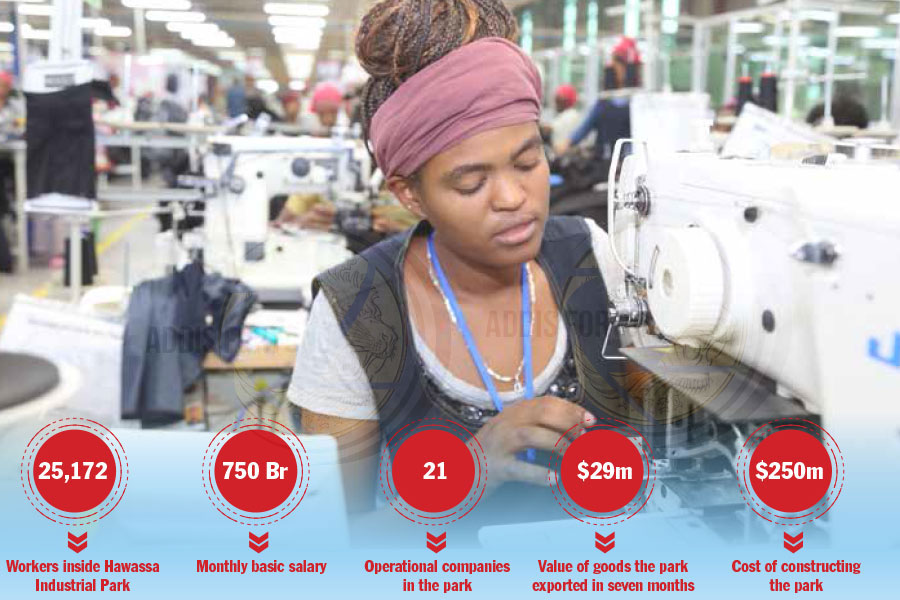
Aug 27 , 2022
By Christian Tesfaye
No one really can predict the future. The advances in collecting, collating and analysing large amounts of data are impressive. But they have not taken humanity as near to clairvoyance as was hoped.
Take, for instance, the predictions on the aftermath of the invasion of Ukraine by Russia. The coverage all around was about doom and gloom. A potential nuclear strike being provoked was discussed; prices for a barrel of oil hitting 200 dollars; and famines in many places being caused by skyrocketing food prices.
The war was and continues to be ugly, but the worst did not happen. In fact, oil prices are below pre-war levels, as well as global food prices. Geopolitical tensions continue to simmer and food prices are still high by historical standards. But many dire predictions did not pan out. Consider even how every pundit agreed that Russia would take over Kyiv, the Ukrainian capital, within a few days until it became all too clear that it had no hope of doing as such.
Or consider the repeated grim assessments of China’s economy. Capital outflows shortly after the war in Europe were supposed to crash the economy. Before that, it was the default by the major real estate developer, Evergrande, which was supposed to be the Lehman-Brothers-collapse moment for China. The country is obviously in a property market crisis, but it is not nearly the calamity it was suggested to be at the outset; not to mention, Evergrande is still standing.
The cherry on the cake was predictions about COVID-19 cases in Africa at the outset of the pandemic. The most morbid reports came from Italy first, with hospitals barely coping with the influx. If Europe struggles so much to arrest the disease, how would Africa, which has the poorest health infrastructure in the world, ever cope? Biblical levels of suffering, it was said, were in store for African countries.
The pandemic was no joke, and its economic and public health effects continue to be felt. But it was nothing like it was predicted to be by the analysts. It has been a struggle to explain why, but the pandemic has been much more manageable in Africa than in the rest of the world, especially considering there have not been full lockdowns.
Why are we so bad at predicting events?
One reasonable explanation is bias. Most of the time, we are expressing what may be based on how we see the world and not necessarily on how it is in reality. We make assumptions that fit our worldviews and ideologies. Even experts have a hard time maintaining an entirely objective stance. The philosophical debate on whether research could be fully objective should be settled by now. It is most likely not the case.
It is also true that most of us are pessimistic. Look at most estimates about events over the past few years, and it is clear that they portray most occurrences as being worse than is otherwise the case. We see a Hitler, an economic calamity or major war in every nook and cranny. It is not that things are not bad. It is just that they are not as bad as advertised – not as grim as the activists and TV channels that want to keep us glued to our screens claim.
It probably has to do with our biological evolution. Our brains are better hardwired to record and respond to potentially alarming developments than they are to good news, because the former could be existential. It is our fight-or-flight psychology at work. The problem is that it was not designed for a world where so much bad news is easily accessible.
Our obsession with data and its analysis makes sense. It is an effort to take subjectivity out of predictions. But this has proven harder than anticipated. We need much more data to map events accurately, including human’s psychological tendency to overreact.
PUBLISHED ON
Aug 27,2022 [ VOL
23 , NO
1165]


Radar | May 21,2022

Commentaries | Jan 05,2019

News Analysis | Aug 25,2024

Radar | Mar 23,2019

Radar | Jan 31,2021

Fortune News | May 25,2019

Sunday with Eden | Feb 13,2021

Fortune News | Jan 13,2024

Films Review | Mar 02,2019

Fortune News | Sep 11,2020

My Opinion | 131453 Views | Aug 14,2021

My Opinion | 127805 Views | Aug 21,2021

My Opinion | 125786 Views | Sep 10,2021

My Opinion | 123421 Views | Aug 07,2021

Dec 22 , 2024 . By TIZITA SHEWAFERAW
Charged with transforming colossal state-owned enterprises into modern and competitiv...

Aug 18 , 2024 . By AKSAH ITALO
Although predictable Yonas Zerihun's job in the ride-hailing service is not immune to...

Jul 28 , 2024 . By TIZITA SHEWAFERAW
Unhabitual, perhaps too many, Samuel Gebreyohannes, 38, used to occasionally enjoy a couple of beers at breakfast. However, he recently swit...

Jul 13 , 2024 . By AKSAH ITALO
Investors who rely on tractors, trucks, and field vehicles for commuting, transporting commodities, and f...

Jun 28 , 2025
Meseret Damtie, the assertive auditor general, has never been shy about naming names...

Jun 21 , 2025
A well-worn adage says, “Budget is not destiny, but it is direction.” Examining t...

Jun 14 , 2025
Yet again, the Horn of Africa is bracing for trouble. A region already frayed by wars...

Jun 7 , 2025
Few promises shine brighter in Addis Abeba than the pledge of a roof for every family...

Jun 29 , 2025
Addis Abeba's first rains have coincided with a sweeping rise in private school tuition, prompting the city's education...

Jun 29 , 2025 . By BEZAWIT HULUAGER
Central Bank Governor Mamo Mihretu claimed a bold reconfiguration of monetary policy...

Jun 29 , 2025 . By BEZAWIT HULUAGER
The federal government is betting on a sweeping overhaul of the driver licensing regi...

Jun 29 , 2025 . By NAHOM AYELE
Gadaa Bank has listed 1.2 million shares on the Ethiopian Securities Exchange (ESX),...